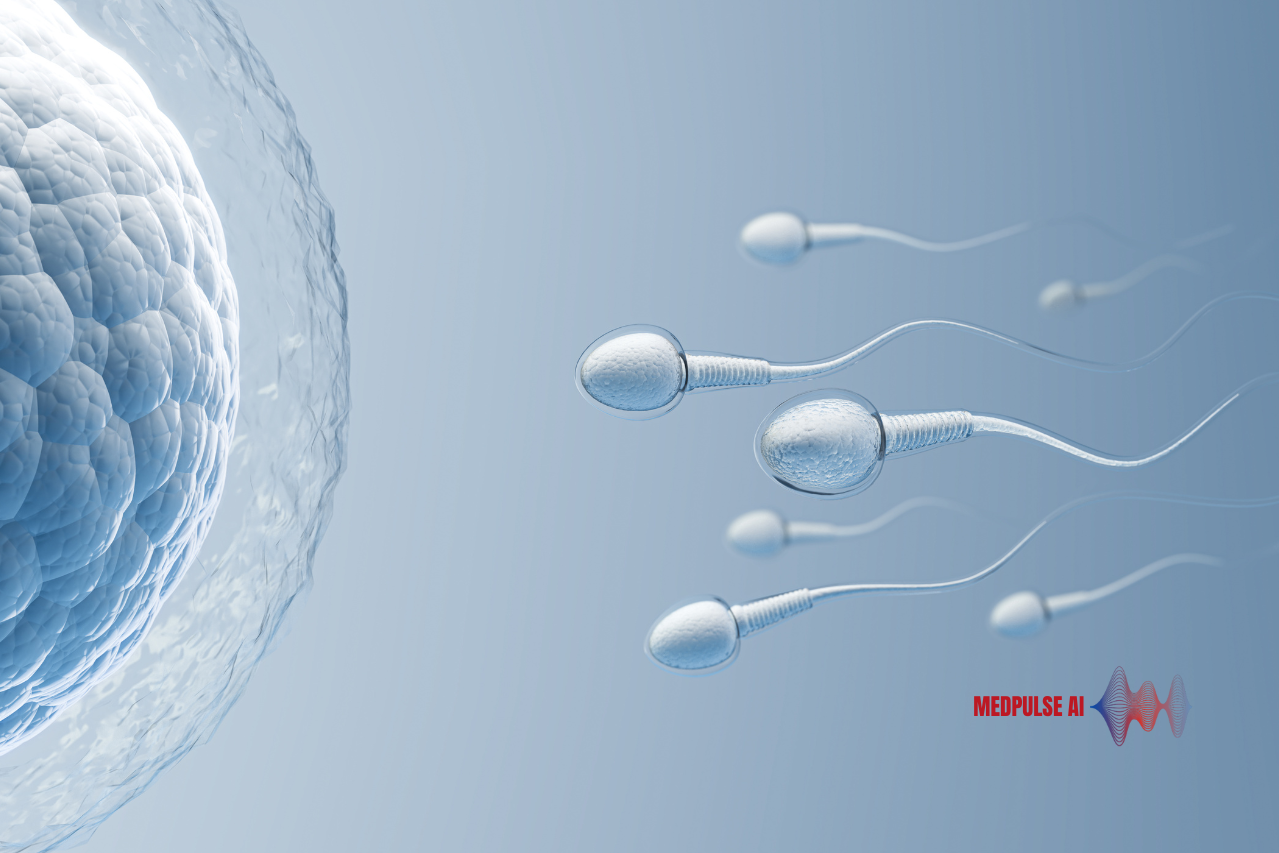Menopause is a defining phase in every woman’s life, marking the end of her reproductive years and ushering in profound physical, emotional, and hormonal changes. Despite its inevitability and the fact that it affects nearly half of the global population at some point, menopause remains one of the most under-researched and misunderstood aspects of women’s health. This lack of focus not only perpetuates stigma but also leaves countless women navigating life-altering changes with inadequate support and resources.
One common misconception about menopause is that it’s an event women abruptly “enter” and “exit.” In reality, menopause is a process, often preceded by perimenopause, a transitional phase that can last several years. During perimenopause, women experience fluctuating hormone levels, irregular cycles, and symptoms like hot flashes, mood swings, and sleep disturbances.

Menopause itself is officially defined as the point when a woman has gone 12 consecutive months without a menstrual period. The journey from perimenopause to menopause and beyond is deeply individual, yet many dismiss it as a singular event rather than a complex and multifaceted experience.
This widespread misunderstanding mirrors the broader lack of attention menopause receives in medical research. While modern medicine has made leaps in addressing fertility and pregnancy-related health, menopause research has lagged far behind.
This disparity is even more glaring given the potential of emerging technologies like artificial intelligence (AI) to deepen our understanding and improve care. However, AI’s ability to revolutionize menopause research is hindered by a lack of comprehensive, high-quality data—a gap that must urgently be addressed.
“Menopause research must reflect the diverse experiences of all women. Until we include data from women of all races, ethnicities, and socioeconomic backgrounds, we cannot claim to truly understand the impact of menopause on women’s health.” Dr. Jennifer Gunter, OB-GYN and Menopause Expert
The Current State of Data on Menopause
One of the primary barriers to understanding menopause is the inadequacy of data collection in Electronic Health Records (EHRs). Most EHR systems lack detailed inquiries into menopause-related symptoms. Often, the only question posed is whether a patient is menstruating, which fails to capture the complexity of the menopausal experience.
The focus on whether a woman is menstruating does not provide insights into her overall health or the symptoms she may be experiencing during menopause. As Melissa Wong, MD, MHDS, director of informatics and AI strategies and assistant professor of maternal-fetal medicine at Cedars-Sinai Medical Center states, “We do not know anything about symptoms surrounding menses. We have never taken a deep dive in a data-driven way about what it means to experience menopause.”
This gap in data collection leads to a limited understanding of how menopause impacts women differently and the variability in symptoms and experiences.
The Role of AI in Menopause Research
AI has the potential to revolutionize how we study menopause by analyzing large datasets and identifying patterns that may not be immediately apparent to researchers. But we must first have diverse datasets that represent the full range of women’s experiences.
Menopause doesn’t look the same for every woman—factors like age, race, ethnicity, socioeconomic status, and geography can all influence how and when menopause occurs, as well as how women experience its symptoms. Without data that captures this diversity, AI models risk being skewed toward one demographic, often failing to provide insights that are applicable or beneficial to everyone.
For AI to be truly transformative in menopause research, we need data that is comprehensive, inclusive, and reflective of the real-world complexity of women’s health. Only then can we ensure that the algorithms developed will offer accurate, personalized insights, and solutions that work for all women, no matter their background or health history. The goal should be to create AI systems that not only advance our understanding of menopause but also provide equitable care for every woman who experiences it.
Menopause affects approximately 50% of the global population, yet it remains significantly under-researched compared to other aspects of women’s health. While women typically enter menopause between the ages of 45 and 55, the experience and timing can vary greatly from one individual to another.
In the United States alone, there are an estimated 48 million women between the ages of 45 and 60— a key demographic navigating perimenopause and menopause—underscoring the widespread impact of this life stage, yet one that remains largely overlooked in medical research.
“The lack of diversity in menopause research has led to a significant knowledge gap. For AI to be effective in menopause care, it must be trained on data that reflects the full range of women’s experiences, from different ethnic groups to various socioeconomic statuses.” Dr. Lisa Mosconi, Neurologist and Women’s Health Expert:
Underrepresentation in Health Research
- Less than 10% of clinical trials: A 2020 review found that less than 10% of clinical trials specifically focus on menopause, and even fewer consider the long-term health effects after menopause. Most research is still heavily focused on fertility and pregnancy.
- Only 4% of health research funding: Research focused on women’s health, including menopause, receives a disproportionate amount of funding. For instance, a 2018 analysis by the National Institutes of Health (NIH) found that just 4% of the annual NIH budget went toward women’s health issues that aren’t related to reproductive health.
Diversity Gaps in Health Data
- Over 80% of clinical trials lack racial diversity: According to a 2021 study published in The Lancet, more than 80% of participants in clinical trials on women’s health are white, significantly underrepresenting Black, Hispanic, and Asian women. This is especially concerning for menopause research, as hormonal transitions and related health risks can vary by ethnicity and race.
- Underrepresentation of non-Western data: A 2023 review published in Menopause (the journal) found that over 70% of menopause-related studies are conducted in Western countries, predominantly using data from White women, which doesn’t reflect the global experience of menopause.
Harnessing AI to Enhance Menopause Research
As of November 2024, there is a notable increase in AI-driven initiatives targeting menopause research, reflecting a growing recognition of the need to address this critical aspect of women’s health. While exact numbers are challenging to ascertain due to the dynamic nature of research and proprietary developments, several key projects and collaborations highlight this trend:
- National Science Foundation (NSF) and National Institutes of Health (NIH) Workshop: In September 2024, the NSF and NIH co-hosted a groundbreaking workshop titled “Using AI to Better Understand Menopause”, which brought together leading experts from biomedical and computing fields. The event underscored AI’s potential to provide new insights into menopause, explore symptom management, and enhance early detection of related health risks.
- Oura’s Perimenopause Report: In November 2024, wearable health tech company Oura released a report utilizing data from over 100,000 users of its smart ring to explore perimenopause symptoms. This AI-powered analysis highlights how wearable devices can offer valuable, real-time insights into women’s health, revealing patterns and trends that might otherwise go unnoticed.
- Lisa Health’s AI-Powered Platform: Lisa Health, a company at the forefront of menopause tech, launched an AI-driven platform called Midday in 2024. This platform provides personalized insights and interventions for women navigating menopause and aging, showcasing how AI can support individualized care and help women manage symptoms with tailored guidance.
- AI Chatbot for Menopause Information: Researchers have also developed an AI-powered chatbot that provides women with accurate, evidence-based information on menopause. Drawing on trusted, peer-reviewed sources, this chatbot demonstrates AI’s ability to offer accessible, personalized education and support, helping women navigate the often-overwhelming amount of information available on menopause.
These examples demonstrate that AI is starting to play a key role in advancing menopause research and support, yet the field is still in its early stages. As more data is collected and AI tools continue to evolve, the hope is that these innovations will lead to better understanding, more personalized care, and improved quality of life for women experiencing menopause worldwide.
The Path Forward
To harness the potential of AI in menopause research, it is essential to prioritize the collection of comprehensive and granular data around menopause. Here are some steps to consider:
- Enhancing EHR Systems: Healthcare organizations should revise EHR systems to include detailed questions about menopausal symptoms, experiences, and overall health. This enhancement will provide richer datasets for AI analysis.
- Encouraging Data Sharing: Collaboration among researchers, healthcare providers, and technology developers is crucial for creating larger, more diverse datasets. Encouraging data sharing can facilitate more comprehensive studies on menopause.
- Promoting Awareness and Education: Raising awareness about the importance of menopause research among healthcare providers and patients can lead to greater advocacy for improved data collection and research funding.
- Investing in Research: Governments, institutions, and private entities should increase funding for menopause research, particularly studies that leverage AI technologies to analyze health data.
Menopause is a critical phase in a woman’s life that deserves greater attention in medical research. The current limitations in data collection regarding menopause hinder our ability to understand its complexities and impact. However, by leveraging AI technologies, we can gain deeper insights into menopause, enabling more effective interventions and improved quality of care for women.
To realize the full potential of AI in menopause research, we must commit to enhancing data collection practices, fostering collaboration, and investing in research. By doing so, we can pave the way for a future where women’s health, particularly during menopause, is understood and addressed with the precision and attention it warrants.
Sources
NIH Study on Menopause Data Nature Article on AI in Women’s Health Office on Women’s Health AI and Data Challenges in HealthcareAre you interested in how AI is changing healthcare? Subscribe to our newsletter, “PulsePoint,” for updates, insights, and trends on AI innovations in healthcare.




